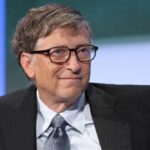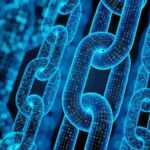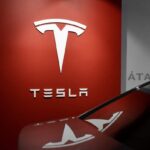In an era where economic inequality has reached unprecedented heights, the divide between immense wealth and abject poverty continues to grow to staggering proportions. This disparity is highlighted by the significant wealth accumulated by the top ten richest Americans compared to that of over 100 of the world’s poorest countries.
In particular, data acquired and calculated by Finbold indicates that as of June 2023, the top ten wealthiest people in the United States collectively possess a net worth of $1.005 trillion. This amount has surpassed the combined Gross Domestic Product (GDP) of the 106 poorest countries, which stands at $998.2 billion, by $7.6 billion.
Breaking down the wealth of the individuals, Elon Musk, the CEO of Tesla (NASDAQ: TSLA), holds the top position with a fortune worth $180 billion. Following closely behind is Jeff Bezos, the founder and former CEO of Amazon (NASDAQ: AMZN), with a net worth of $114 billion, while Larry Ellison of Oracle (NYSE: ORCL) claims the third spot with $107 billion. Warren Buffett and Bill Gates occupy the fourth and fifth positions, respectively, with wealth amounting to $106 billion and $104 billion.
The impact of wealth disparity
The wealth disparity statistics paint a vivid picture of an imbalanced global economy that has prompted questions on the consequences and implications of such an immense divide. The sheer magnitude of this wealth discrepancy cannot be understated. The top individuals possess resources and economic influence on a scale that can potentially shape the course of economies and influence political landscapes. The vast fortunes amassed by this elite few raise concerns about the concentration of power and its impact on socioeconomic systems.
While wealth accumulation is not inherently negative, the chasm between the richest and the poorest is symptomatic of broader structural issues within societies and the global economy. The lack of economic mobility, and limited access to education, healthcare, and basic necessities for those in impoverished nations, further exacerbate this imbalance.
Indeed, the American richest have accumulated wealth in a phase of global economic hardship characterized by historic inflation and increasing energy and food prices. Notably, a majority of the billionaires are concentrated in the technology space, which received a boost from the health crisis. For instance, Musk’s rise to the top of the rich list was triggered by Tesla’s stock growth amid the health pandemic.
Drivers of the wealth divide
Amidst the exponential growth of billionaires’ fortunes and the skyrocketing profits of corporations, impoverished nations are grappling with the severe repercussions of rampant inflation. The billionaires have not only thrived but have also taken advantage of an alleged regressive tax system, where the wealthiest individuals in the United States have faced accusations of paying lower taxes due to government policies that predominantly favor the rich.
In various regions across the globe, the progress of impoverished countries remains hindered by a multitude of factors, including the pervasive plague of unemployment. The majority of the workforce is entrenched in the informal sector, characterized by meager wages, unfavorable working conditions, and a lack of social safeguards.
Consequently, workers face immense difficulties saving and investing in education or small enterprises, thereby experiencing limited economic mobility. The source of wealth plays a pivotal role in understanding this gap, as the wealthiest group accumulates their fortunes through financial market assets and business equity.
Despite the potential threats to their wealth posed by prevailing macroeconomic factors, any recovery measures implemented are likely to favor the rich. Furthermore, the impoverished’s lack of capital ownership, particularly in equities, elucidates why their wealth constitutes a significant portion of the GDP in these countries.
The disparity is also visible in the US. In this line, a previous Finbold report in 2021, revealed that 10% of the U.S. richest hold 69% of the country’s entire household wealth
Solving the divide
Overall, the contrast between America’s wealthiest individuals and the GDP of impoverished nations has far-reaching implications. Redirecting the wealth amassed by the wealthiest Americans towards global issues like poverty, healthcare, education, and sustainable development could bring about substantial positive change, with different lobby organizations pushing for a similar approach.
Moreover, the concentration of wealth raises concerns about tax policies and equitable resource distribution. Increasing calls for progressive taxation and wealth redistribution reflect societies’ struggle with the inherent unfairness of the current system. Critics argue that concentrated wealth hampers economic growth, perpetuates social inequalities, and undermines democratic societies.








